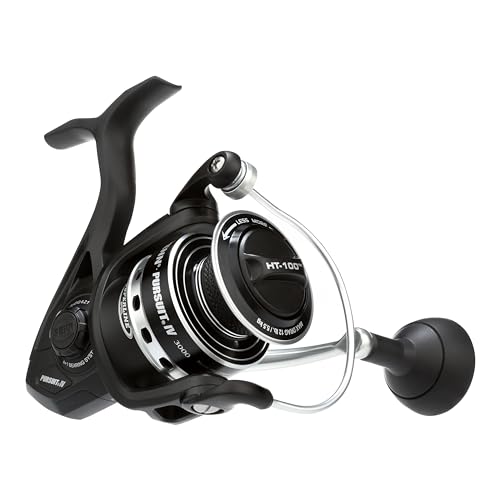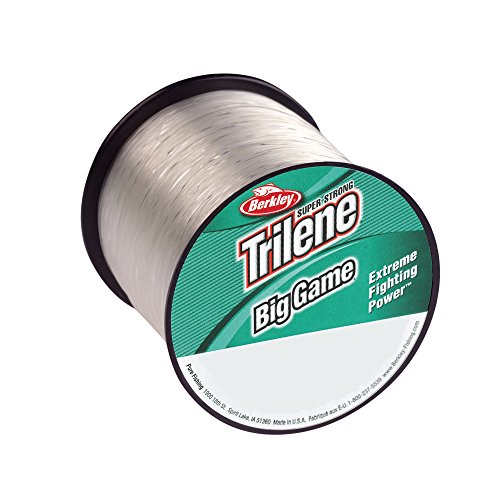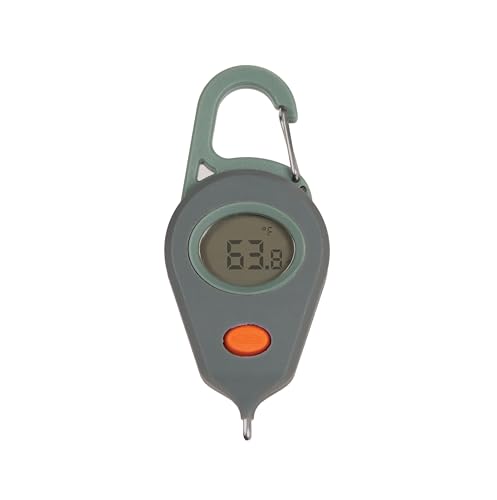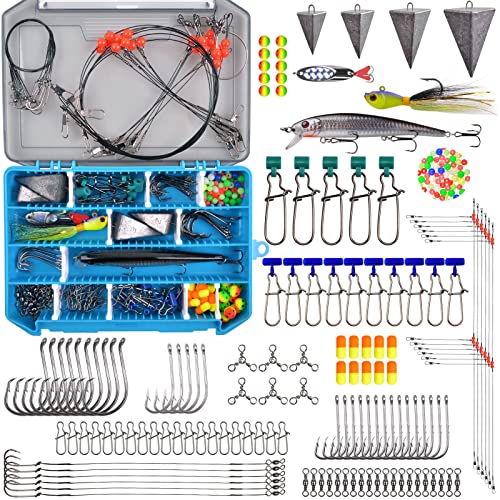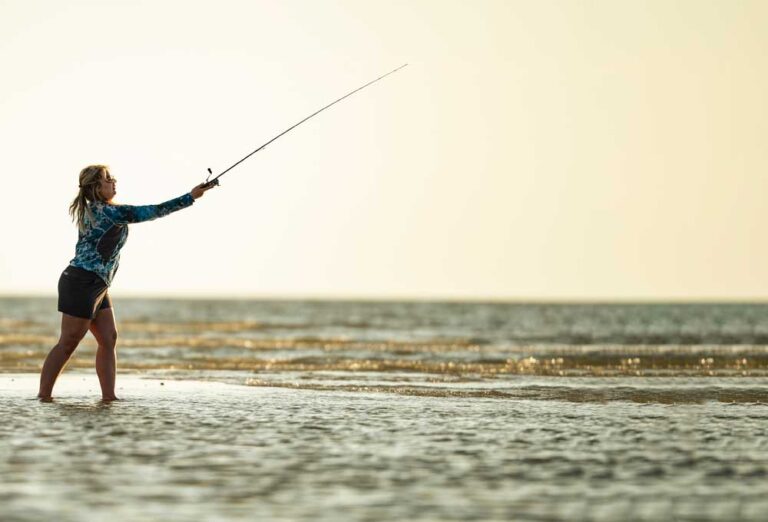For surf fishing, essential gear includes a rod and reel, fishing line, lures or bait, sand spikes, and a tackle box. Surf fishing is a type of fishing that is done from the shoreline, which requires specialized gear to handle the unique challenges of fishing from the beach.
Whether you’re looking to catch striped bass, bluefish, or other species, having the right gear can make all the difference. In this article, we will explore the various essential gear items required for surf fishing, including the type of fishing rod and reel, the best fishing line to use, the most effective lures or bait, and necessary accessories like sand spikes and tackle boxes.
By the end of this article, you’ll have a better understanding of what gear you need to catch fish in the surf.

Credit: fishingconnection.org
Gear Up For Success: Maximize Your Catch With The Right Surf Fishing Equipment
Gear up for success: maximize your catch with the right surf fishing equipment
Are you looking to catch your next big fish while surf fishing? Then, it’s essential to have the right gear to increase your chances of success. Beginner or pro, it’s important to have an understanding of the equipment you’ll need, such as the fishing rod, reel, fishing line, bait, and lures.
We’ll examine the significance of each item and some key factors to keep in mind while selecting them.
Importance Of Selecting The Right Fishing Rod For Surf Fishing
A fishing rod is the most crucial part of your gear and needs to be sturdy, durable, and saltwater-resistant. Other important factors to consider while selecting a fishing rod are the length, power, action, and number of pieces. Here’s what you need to know:
- A longer fishing rod gives you a better casting distance, while a shorter one is ideal for more excellent control and maneuverability.
- The power of a rod is its ability to hold and manage the weight of the fish, and the action refers to how much the rod bends under pressure.
- Most surf fishing rods come in two or more pieces, making them easier to transport and store.
Choosing The Most Effective Fishing Reel For Successful Catch
Your reel is just as important as your fishing rod. You’ll need a large capacity and durable reel to handle the heavy fish in the surf. Look for a reel with a high gear ratio that enables you to retrieve the line faster.
Additionally, consider other factors like the drag and spool capacity for a successful catch.
Factors To Consider When Selecting Surf Fishing Line
The fishing line needs to be sturdy enough to withstand the pressure of the waves and the strength of the fish you’re trying to catch. Follow these tips when selecting the right surf fishing line:
- Choose a heavy mono-filament line with a test range of 14 to 20 pounds.
- Fluorocarbon lines are a good alternative as they are practically invisible to fish and more resistant to abrasions.
- Always check if the line capacity matches your reel.
Using The Right Bait And Lures To Attract Fish In The Surf
Once you have the equipment, it’s time to choose the right bait and lures. The basic principle revolves around choosing bait that mimics the fish’s preferred food. Here are some tips to keep in mind:
- Clams, sand crabs, and sand worms are good bait options for surf fishing.
- Lures that mimic small fish or squid are also effective.
- Colorful lures that contrast with the water and the sky above can be more visible to the fish.
Selecting the right gear such as the rod, reel, line, bait, and lures are crucial to your success in surf fishing. Remember to pay attention to the length, power, action, and number of pieces while selecting a fishing rod and choose a large capacity reel with a high gear ratio.
Moreover, choose a sturdy fishing line and bait that matches the fish’s food preference. Happy fishing!
Selecting A Surf Fishing Rod
Overview Of The Different Types Of Surf Fishing Rods Available
Surf fishing rods are specifically designed to help anglers cast long distances into the ocean, and there are three main types to choose from:
- Spinning rods
- Baitcasting rods
- Fly rods
Factors To Consider When Selecting A Surf Fishing Rod, Including Length, Power, And Action
When choosing a surf fishing rod, it’s important to consider certain factors that will affect your casting distance and the type of fish you’re targeting.
- Length – the length of your rod determines the distance you can cast. A longer rod is better for casting farther distances but can be more challenging to control.
- Power – also known as ‘rod weight,’ power refers to the amount of force required to bend the rod. The heavier the power, the more force is required to bend the rod. Choose a power that corresponds with the type of fish you are targeting.
- Action – this refers to where the rod bends when pressure is applied. Fast action rods bend mostly towards the tip, while slow action rods bend more towards the middle. Be sure to choose an action that suits your casting and fishing style.
The Importance Of Selecting A Rod That Can Cast Far Distances
Being able to cast long distances with your fishing rod is crucial when surf fishing. When selecting a surf fishing rod, consider the length, power, and action to ensure that you can cast far enough to reach the fish you are targeting.
A rod with the right combination of length, power, and action will help you cast more accurately and efficiently, giving you a better chance of catching fish.
Choosing The Right Surf Fishing Reel
Surf fishing is an adrenaline-packed way to catch big fish, but you can’t do it without the right gear. A surf fishing reel is a crucial piece of equipment that can make or break a fishing trip. Whether you’re a beginner or an experienced angler, choosing the right surf fishing reel can be daunting.
In this section, we’ll explore the key factors you should consider when selecting a surf fishing reel, as well as the different types of surf fishing reels available.
Explanation Of The Different Types Of Surf Fishing Reels Available
Surf fishing reels come in different shapes, sizes, and types. Here are the most common types of surf fishing reels:
- Spinning reels: These reels are ideal for beginners because they are easy to use and handle. They are the most popular type of surf fishing reel because they are versatile, effective, and affordable. Spinning reels have an open-faced design, and they use a spool that rotates parallel to the rod to cast the line.
- Baitcasting reels: These reels have a dial or lever that lets anglers adjust the spool’s speed and direction as they cast. Baitcasting reels are great for experienced anglers because they offer greater accuracy and control. They are heavier, more cumbersome, and more expensive than spinning reels.
Factors To Consider When Selecting A Surf Fishing Reel, Including Gear Ratio, Size, And Drag System
Choosing a surf fishing reel depends on your skill level, the fish species you’re targeting, and the type of fishing you’re doing. Here are the key factors you should consider when selecting a surf fishing reel:
- Gear ratio: This refers to how many times the spool rotates per turn of the handle. A high gear ratio means the spool rotates faster and retrieves the line quickly. A low gear ratio means the spool rotates more slowly. A fast gear ratio is best for casting long distances and retrieving lures quickly. A slow gear ratio is best for fighting big fish.
- Size: Surf fishing reels come in different sizes, and each size is designed for a specific type of fishing. You should select a reel that can handle the weight of the fish species you’re targeting and the type of bait you’re using.
- Drag system: This is a mechanism that controls the tension on the fishing line. The drag system helps anglers tire out big fish and prevent the line from breaking. The drag system’s effectiveness depends on its quality, size, and material.
Comparison Of Spinning Reels And Baitcasting Reels For Surf Fishing
Spinning reels and baitcasting reels are the two most common types of surf fishing reels. Here’s a brief comparison of their pros and cons:
- Spinning reels:
- Pros: Easy to use, lightweight, accurate, and versatile. They are ideal for beginners and anglers who want a reel that can handle different types of fishing.
- Cons: Limited casting distance, not as powerful as baitcasting reels, poorly suited for heavy lures, and not as durable as baitcasting reels.
- Baitcasting reels:
- Pros: Powerful, accurate, durable, and can handle heavy lures. They are ideal for experienced anglers and surf fishing veterans who want greater accuracy and control.
- Cons: Heavier, more cumbersome, and more expensive than spinning reels. They require a steeper learning curve and can be challenging to use for beginners.
Selecting the right surf fishing reel is critical to a successful fishing trip. By considering the factors we outlined above, you can find a reel that matches your skill level, fishing preferences, and budget. Spinning reels and baitcasting reels are both great options, and deciding which one to use depends on your personal preference, experience, and the type of fishing you will be doing.
Selecting The Best Surf Fishing Line
Overview Of The Different Types Of Fishing Lines Available For Surf Fishing, Including Braided And Monofilament Lines
When it comes to surf fishing, choosing the right fishing line can make all the difference. There are two popular types of fishing lines used for surf fishing- braided and monofilament lines. Here are some points to consider when choosing the right fishing line for your surf fishing venture:
- Braided lines are made from multiple strands of synthetic material and are known for their incredible strength, sensitivity, and thin diameter. They cast farther and are perfect for catching big fish. However, they are more visible in clear water and can cause drag.
- Monofilament lines are made of a single strand of nylon and are affordable, stretchable, and easy to handle. They are less visible in water and less likely to cause resistance. But, they have more memory than braided lines, and their strength reduces with time.
Factors To Consider When Selecting Fishing Line, Including Strength, Diameter, And Visibility
There are several factors to consider when selecting the best fishing line for surf fishing. Here are some essential factors to keep in mind:
- Strength is one of the most critical factors when selecting your surf fishing line. You need to consider the maximum weight the fishing line can handle and select a line with the capability to handle the weight of the fish you are targeting.
- Diameter is also critical when selecting fishing lines for surf fishing. Thicker lines have more resistance in water and can cause resistance when casting, while thinner lines might not have enough strength to handle heavier fish.
- Visibility is the third important factor. If the water is clear, then the visibility of your fishing line could affect your chances of catching fish. That is why some anglers choose low visibility braids or fluorocarbon lines to make the line less visible to fish.
How Line Color Can Make A Difference In Your Surf Fishing Success
The color of your fishing line can make a significant difference while surf fishing. Here are some points to consider:
- Low visibility colors like clear, blue, and green are ideal for clear water conditions. These colors are less visible underwater and more difficult for fish to detect.
- High visibility colors like yellow and red are ideal for murky water conditions. These colors are highly visible to the anglers, allowing them to detect bites easily.
- Multicolored lines are also available, making it easier to detect line movement and determine the depth of bait. They are great for deep water fishing.
By following these guidelines for selecting the best surf fishing line, you will increase your chances of landing that catch of a lifetime. Remember to factor in strength, diameter, visibility, and color when making your selection. Happy fishing!
Using The Right Bait And Lures
Overview Of The Different Types Of Bait Available For Surf Fishing, Including Live And Artificial Options
When it comes to selecting the ideal bait for surf fishing, there are numerous options to choose from. Some anglers prefer to use live bait, while others prefer artificial baits. Here’s an overview of different types of baits for surf fishing you can use:
- Live bait:
- Sand crabs: The most frequently used bait in surf fishing. You may use them whole or in pieces.
- Squid: A highly effective bait that entices various varieties of fish. You can also use cuttlefish and octopus.
- Shrimp: Shrimp is a preferred bait when fishing for smaller fish species.
- Clams: The best option if you want to catch bigger fish species like striped bass, bluefish, etc.
- Artificial bait:
- Metal spoons and spinners: These baits are ideal for fishing in faster current and when larger fish species are your target.
- Soft plastic lures: These lures come in several designs like eels, worms, and sandworms. They can imitate natural bait and encourage predatory fish species to strike.
- Surface plugs: Topwater plugs create surface “commotion” that can attract more fish.
- Jigs: Jigs are versatile and can imitate smaller bait fish to entice larger fish like striped bass.
Using Lures Effectively In The Surf, Including Topwater Plugs, Swimbaits, And Jigs
When using lures for surf fishing, there are a few key things to keep in mind. Here’s how to use topwater plugs, swimbaits, and jigs effectively:
- Topwater plugs:
- Use them in amber or green water when little light is available.
- Avoid using them in crystal clear water where fish might get spooked due to their visibility.
- Swimbaits:
- Jointed swimbaits create a more lifelike swimming motion and can attract the fish effectively.
- You can use swimbaits to simulate a range of aquatic creatures, from crayfish to shad.
- Jigs:
- Jigs are versatile because of their design and ability to mimic smaller baitfish types.
- You can use jigs with trailers or live baits, or you can add scent to enhance the bait’s effectiveness.
Factors To Consider When Selecting Bait And Lures, Including The Type Of Fish You Are Targeting And The Surf Conditions
Choosing the appropriate bait and lures for surf fishing can be critical to your success. Here are some crucial factors to consider:
- Type of fish:
- Knowing the fish species you want to catch will help you decide what kind of bait or lure to use.
- Different fish species prefer particular types of bait or lures, and using the right one will help you draw them to your line.
- Surf conditions:
- Different surf conditions will also influence the type of bait or lure you employ to catch fish.
- If the surf is rough, jigs will be more effective as they have a heavier weight.
- Smaller baits will work better in calmer waters.
- Time of day:
- The time of day may also determine what bait or lure to use.
- For instance, topwater plugs are more successful in low light conditions or early morning and late evening.
- Midday conditions are typically not as fruitful for surface plugs.
When you understand the factors that contribute to a successful day of surf fishing, selecting the proper bait and lure will become simpler. Remember to try out different types of baits and lures and alter them as required to find the perfect combination that works for you.
Conclusion
To conclude, having the right gear is crucial when surf fishing. Without it, your chances of success are significantly reduced. You need to be well-prepared and ensure that you have the right fishing rod, reel, line, bait, and other essential accessories before you head out to the beach.
This can make a big difference in terms of the number and size of fish you catch. It is also essential to stay safe during your fishing trips, so always wear appropriate clothing and carry a first aid kit. With the right equipment and knowledge, you can have a great time surf fishing and enjoy the beautiful ocean scenery.
So, invest in quality gear and remember to practice responsible fishing techniques so that you can preserve our oceans and their inhabitants for future generations. Happy fishing!

